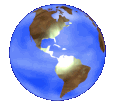
AKTUALNO - 2004
Stran se bo dopolnjevala v okviru razpoložljivega časa. Za vse morebitne napake in nerodnosti se že v naprej opravičujem.

Vir : Astronomy Picture of the Day via AGO.
translation into Slovenian by H. Mikuz.
-
POMOČ PRIZADETIM ZARADI POTRESA IN CUNAMIJEV 26. DECEMBRA 2004, Indijski ocean
Slovenska KARITAS, TRR NLB 02140-0015556761, sklic: 121204, namen: Cunami-Azija
RDEČI KRIŽ Slovenije, TRR NLB 02922-0019831742, sklic: 4014, namen: Potres JV Azija
UNICEF, TRR NLB 02085-0017741956
26. DECEMBRA 2004 SE JE ZGODILA KATASTROFA, KI JE PRETRESLA CEL SVET. STO TISOČE LJUDI JE IZGUBILO ŽIVLJENJE, VEČ TISOČ JE RANJENIH IN POGREŠANIH IN PREKO 2 MILIJONA LJUDI JE BREZDOMCEV.
IDILA PRED POTRESOM
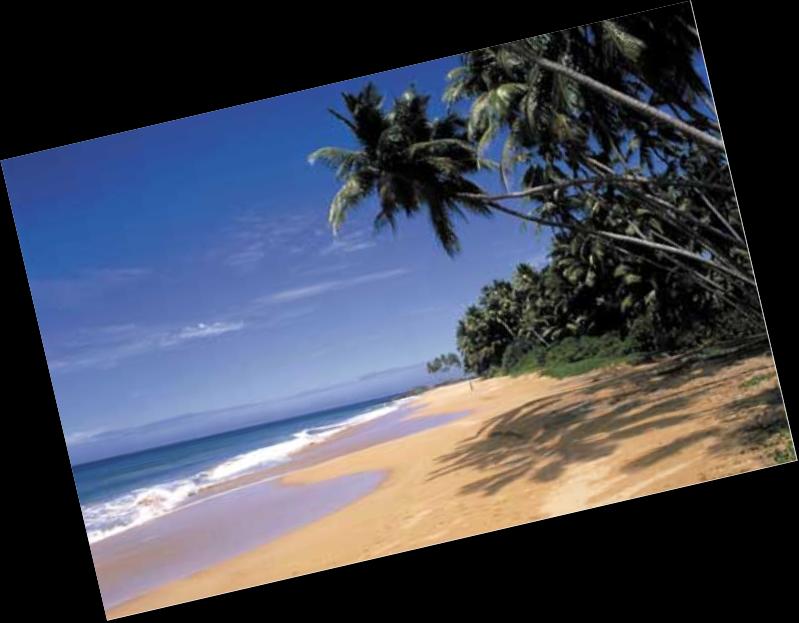
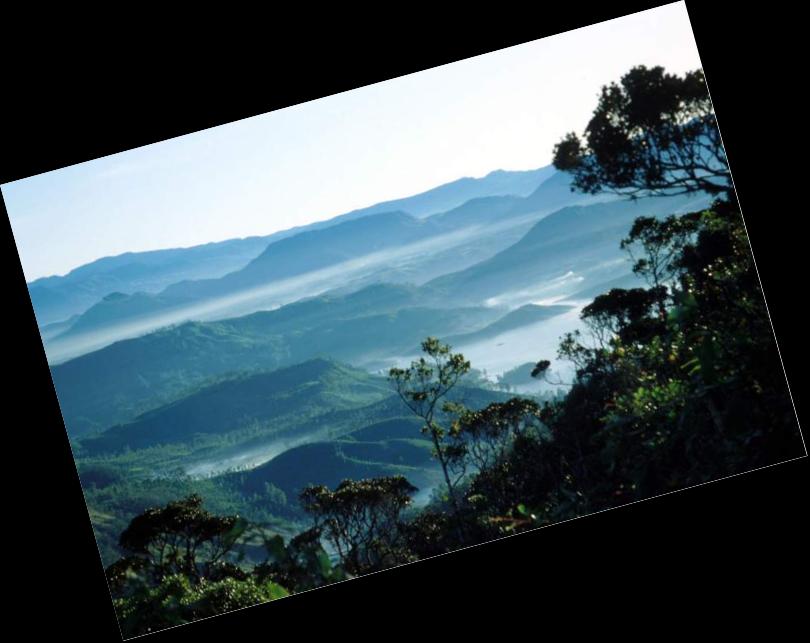
Glavni potresni sunek se je zgodil 26. decembra 2004 ob 00:58:50 UTC (07:58:50 po krajevnem času v Džakarti in Bangkoku). Cunamiji, ki so mu sledili so opustošili obale Indijskega oceana na Šrilanki, jugovzhodni Indiji, Indoneziji, Tajski, Maleziji, Maldivih in Mjanmarju.
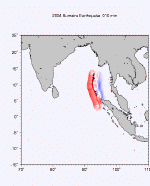
Glej vir ali original
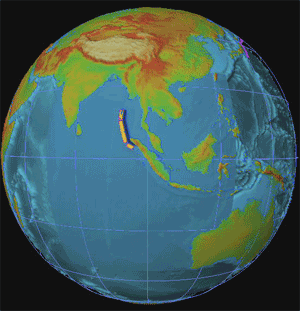
ANIMACIJA CUNAMIJA PO POTRESNEM SUNKU. V NEKAJ URAH SO VALOVI DOSEGLI INDIJO.
Strokovnjaki trdijo, da se je tudi vztrajnostni moment "J" Zemlje nekoliko zmanjšal in tozadevno skrajašal tudi čas rotacije, za 3 mikrosekunede na dan, tudi težišče se je nekoliko premaknilo, za 2.5 cm
( Razlaga, ker ni zunanjhih vplivov, navorov - razen morebiti dodatnih plimskih sil - na Zemljo, velja ohranitev vrtilne količine: J1 * 2*p/T1 = J2 * 2*p/T2,
če J1 > J2 , potem je obhodni čas
T1 > T2 , velja torej T2 = T1 - 3 ms . ).
Glej tudi: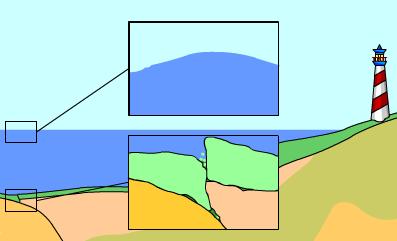 Groba animacija nastanka, VERIKALNI TEKTONSKI PREMIK.
Groba animacija nastanka, VERIKALNI TEKTONSKI PREMIK.
Samo v informacijo, nedavno tega se je pojavila teorija, da se je pred približno 60 milijoni let Zemlja skoraj za 2x "napihnila". Kako dobro podprta je ta teorija, je vprašanje, ki je zelo na mestu (baje v prid teoriji, o nekoč manjši Zemlji, govorijo ogromni leteči dinozavri - pterozavri, manjša je Zemlja, večja sta gravitacija in zračni pritisk, večja sta hidrostatični in dinamični vzgon, ki omogočata letenje večjim bitjem, pa še nekaj argumentov navajajo). Take teorije ob takih dogodkih postanejo, če drugega ne, zanimive vsaj v toliko, da nas spet ozavestijo o našem planetu, ki še zdaleč ni geološko in klimatsko idilična, stabilna kroglica - oaza v vesolju.
To je bil največji potres na Zemlji od 9,2 stopenjskega potresa na Aljaski (27. marec 1964). Desettisoče ljudi je umrlo zaradi do 15 m visokih cunamijev , ki so zalili obalna področja 15 minut do 10 ur kasneje in povzročili eno od največjih katastrof v moderni zgodovini. Cunamiji so dosegli celo Somalijo in druge države na vzhodni obali Afrike, 4.500 km stran od epicentra. Valovi so se razširili tudi v Tihi ocean in povzročili motnje v plimovanju v severni in južni Ameriki.
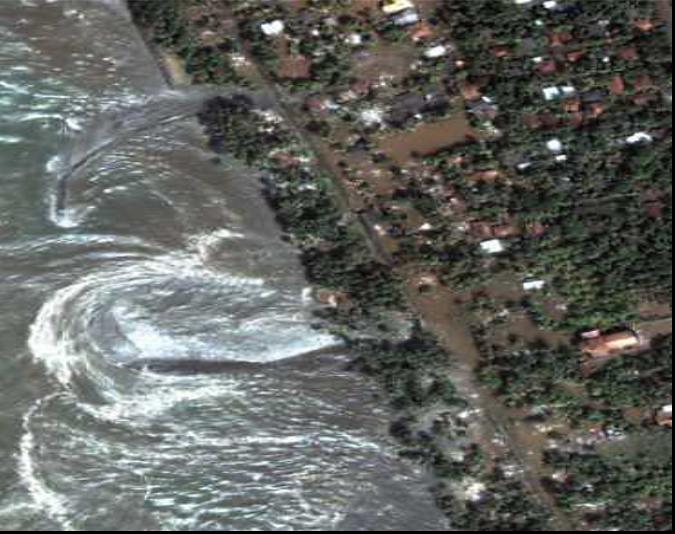
ZDRUŽENI NARODI OCENJUJEO ŠTEVILO SMRTNIH ŽRTEV NA 400.000, VEČ STO TISOČ JIH POTREBUJE NAŠO POMOČ
ZATO POŠLJI SMS SPOROČILO S KLJUČNO BESEDO CUNAMI NA ŠTEVILKO 1919. DAROVANI ZNESEK ENKRATNEGA SPOROČILA 230 TOLARJEV. ZATE JE TO LE 230 TOLARJEV, KI PA ŽRTVAM POTRESA PRINESE NPR. 15 LITROV PITNE VODE ALI OBILICO HRANE, KI SO JE NUJNO POTREBNI !
POMAGAJ S SMS SPOROČILOM ALI NAKAZILOM NA SLEDEČE RAČUNE ORGANIZACIJ!
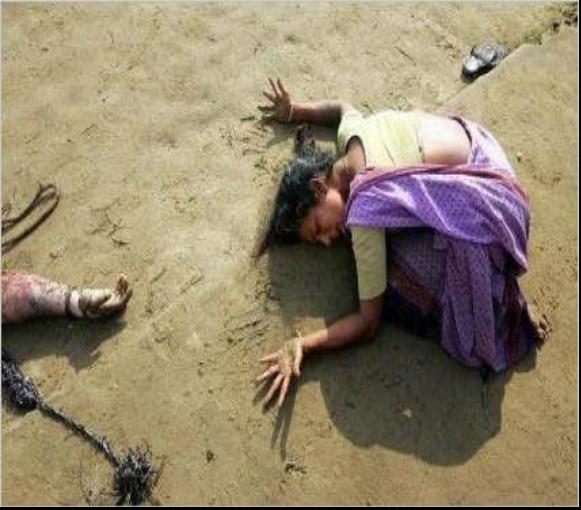
Slovenska KARITAS, TRR NLB 02140-0015556761, sklic: 121204, namen: Cunami-Azija
RDEČI KRIŽ Slovenije, TRR NLB 02922-0019831742, sklic: 4014, namen: Potres JV Azija
UNICEF, TRR NLB 02085-0017741956
How fast does a tsunami travel?
The approximate speed of a tsunami, c, is given by
c = sqrt(g*h), where
g = 9.8 m/s^2 = acceleration due to gravity
h = water depth in meters
c = wave celerity(or speed)
in m/s
The speed is given in m per sec by the rule, so you have to convert to km per hour by multiplying the answer by 3.6. This expression is derived from linear long wave theory, and the approximation is good from about
100 m to the deepest ocean depths.
The average depth of the ocean is about ~ 4500 m or so, therefore
c ~ 210 m/s ~ 756 km/hour
A tsunami in only 1000 m of water would travel at 99 m per sec = 356 km/hour
A tsunami in 5039 m of water would travel at 800 km/hour.
A tsunami in 6000 m of water would travel at 873 km/hour.
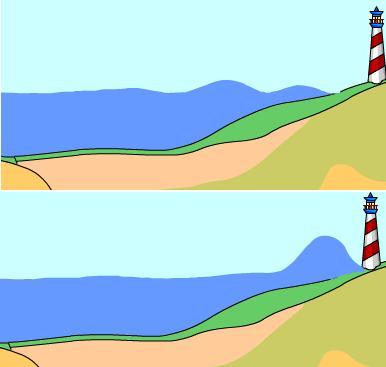
Worldwide Earthquake Activity in the Last Seven Days
-
Komet C/2004 Q2 (Machholz), 6.1.2005
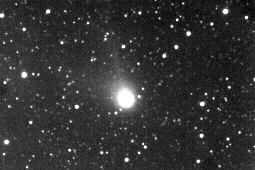
Komet C/2004 Q2 (Machholz) posnet 17.1.2005 ob 22:04 UT s teleobjektivom 200 mm f/4 in CCD kamero ST7, montirano preko piggybacka na LX200 - ekspozicija 55 sekund, brez filtra. Lepo se vidi rahlo "razcefran" rep. Posneli: Klemen Blokar, Zorko Vičar, Matija Kastelic, Andrej Lajovic.
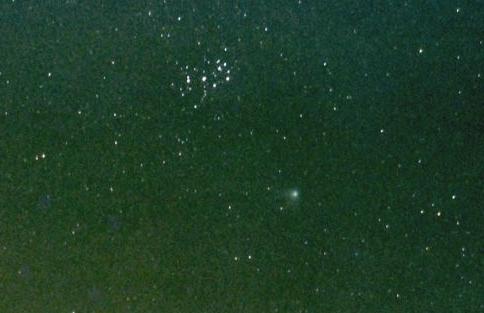
Komet C/2004 Q2 (Machholz) posnet januarja 2005 s teleobjektivom 200 mm, na klasični film , fotoaparat je bil montiran na piggyback teleskopa LX200. Lepo se vidi zelena barva kometa in zametek dveh repov. Posnel: Peter Mihor.
Dodano 2.4.2005, v spomin JPII.
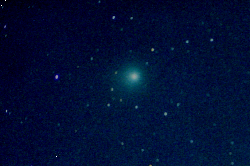
Komet C/2004 Q2 (Machholz) posnet januarja 2005 s teleobjektivom 300 mm, na klasični film , fotoaparat je bil montiran na piggyback teleskopa LX200. Lepo se vidi zelena barva kometa. Posneli: člani astronomskega krožka Gimnazije Šentvid.
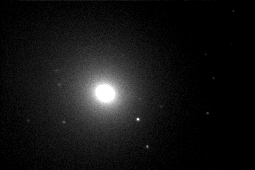
Komet C/2004 Q2 (Machholz) posnet 6.1.2005 ob 22:38 UT s teleskopom 25cm f/6.3 LX200 in CCD kamero ST7 - ekspozicija 15 sekund, brez filtra. Prisotni: Peter Mihor, Dejan Kolarič, Klemen Blokar, Zorko Vičar, Matija Kastelic.
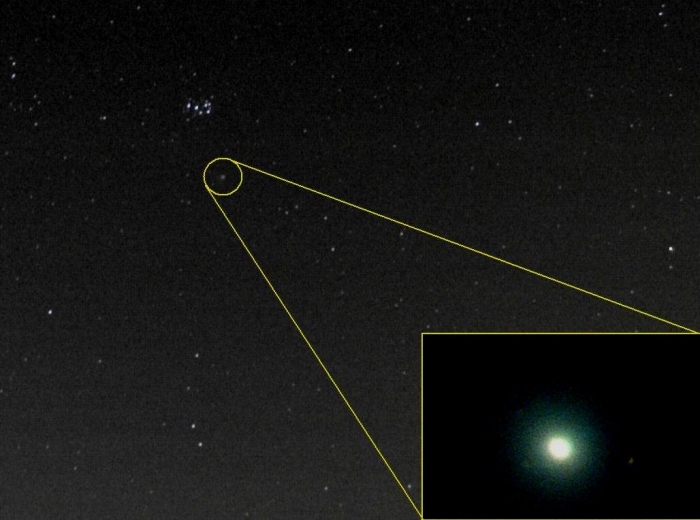
Komet C/2004 Q2 (Machholz) posnet 6.1.2005 okrog 22:00 UT s Canon A60 digitalnim fotoaparatom, pritrjenim na (Piggyback) LX200 - ekspozicija 15 sekund, objektiv 50 mm. Pod Plejadami (M45) je v krogcu označen komet, spodaj desno pa je barvna slika posneta s CCD ST7. Pogled z daljnogledom nudi (je nudil) res lep prizor, na žalost Šentvid nima optimalnih pogojev za kvalitetne posnetke in opazovanja. Snemal in imenitno obdelal Dejan Kolarič, ostali prisotni: Peter Mihor, Klemen Blokar, Zorko Vičar, Matija Kastelic. Glej tudi: http://antwrp.gsfc.nasa.gov/apod/ap050105.html
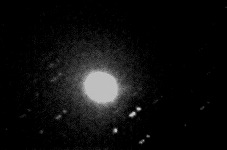
Komet C/2004 Q2 (Machholz) posnet 6.1.2005. Peter Mihor je več posnetkov zložil skupaj (ura - od 23.34 do 23:51) v enega (poravnava na kometu), iz katerega se vidi kako hitro komet potuje.
-
Komet C/2004 Q2 (Machholz), obisk predavanja Einsteinova pot do "najbolj razvpite enačbe
E=m*c2",
20.12.2004
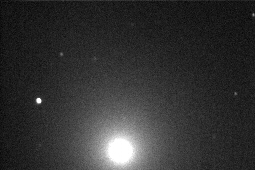
Komet C/2004 Q2 (Machholz) posnet 20.12.2004 ob 22:40 UT s teleskopom 25cm f/6.3 LX200 in CCD kamero ST7 - ekspozicija 15 sekund, brez filtra. Sliko smo posneli po predavanju Einsteinova pot do "najbolj razvpite enačbe E=m*c2". Mrzel večer smo si lajšali z vročim čajem in s tem tudi "pridobivali na masi", Dm=MCDT/c2.
Comet C/2004 Q2 (Machholz) taken on December 20, 2004 at 22:40 UT with 25cm f/6.3 LX200 and CCD ST7 - 15 seconds unfiltered exposure. Copyright © 2004 by AKGŠ and ADV (Zorko Vičar, Andrej Lajovic, Gregor Vertačnik, Peter Mihor).
Glej tudi:
http://www.astronomische-reisen.de/kometen/2004q2.htm
Spodaj je karta poti kometa C/2004 Q2, komet se vidi že s prostim očesom.
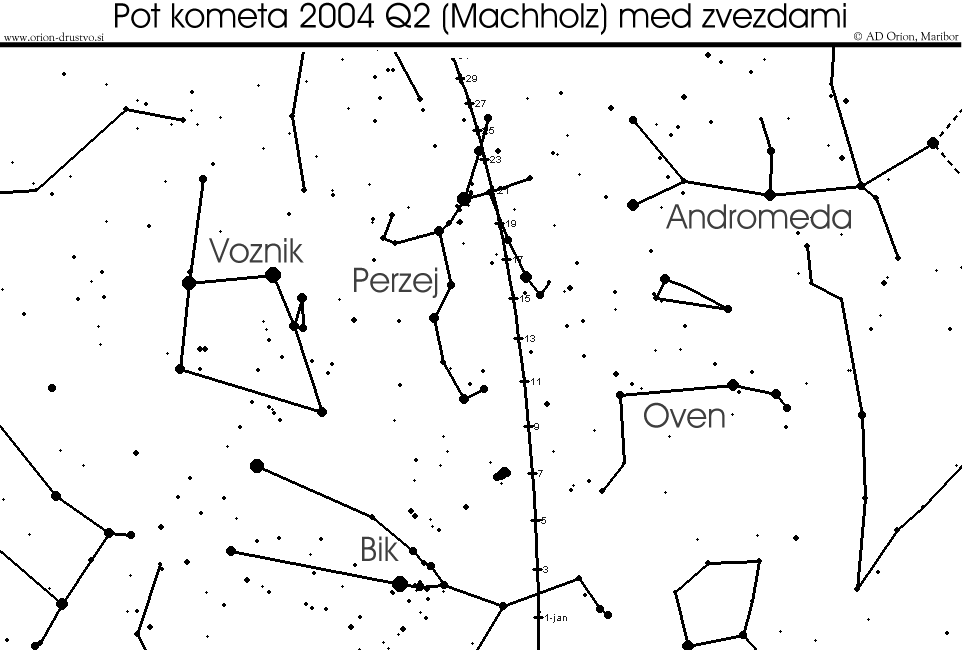
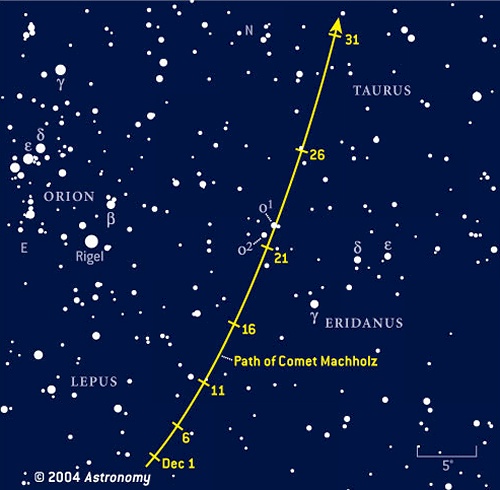
Spodaj je 3D lega Machholz-a.
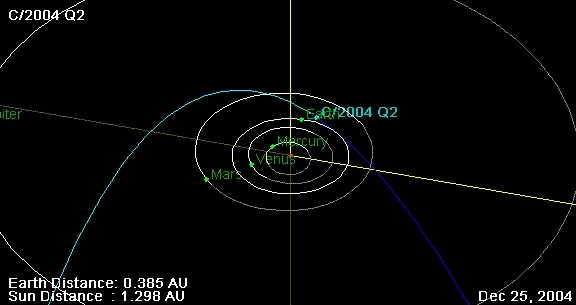
efemeride: http://cfa-www.harvard.edu/iau/Ephemerides/Comets/2004Q2.html
____________________________________________________________________
Predavanje Einsteinova pot do "najbolj razvpite enačbe" (Predavanje je bilo v ponedeljek, 20. 12. 2004 ob 20:30 v Hiši eksperimentov - Trubarjeva 39, Ljubljana).
Nekaj misli iz povabila
Albert Einstein je v svojem čudovitem letu 1905 v članku "K elektrodinamiki gibajočih se teles" uvedel posebno teorijo relativnosti. Še isto leto je v zelo kratkem dodatku "Ali je vztrajnost telesa odvisna od njegove energije?" izpeljal zvezo med maso in energijo. Ne po Einsteinovem mnenju ne po mnenju drugih fizikov to ni bil "revolucionaren" korak. Predavanje naj bi pojasnilo ozadje te trditve. Ali so poznali podobno zvezo prej? V kolikšni meri je bila novost posebna teorija relativnosti sama? Nekaj besed bo posvetilo tudi preizkusu enačbe in Einsteinovemu poznejšemu odnosu do jedrskega orožja.
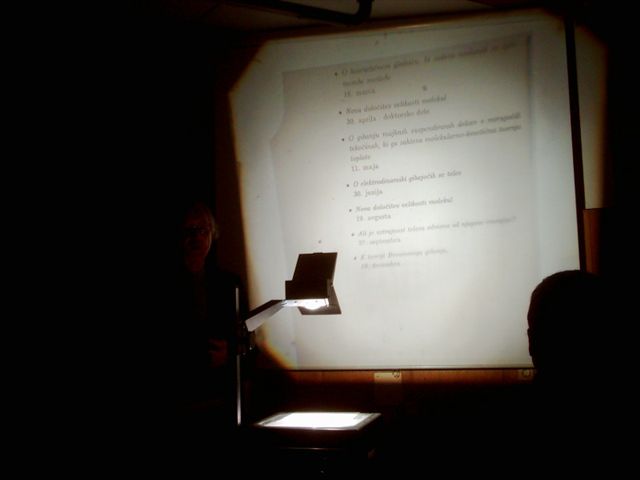
Kje je predavatelj?
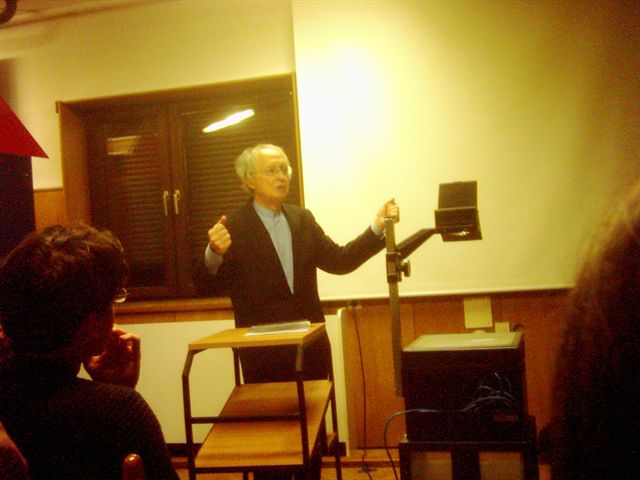
Predavatelj profesor Janez Strnad se je zelo potrudil, požel je velik aplavz in pogovor po predavanju je bil zelo poučen in izzivalen.
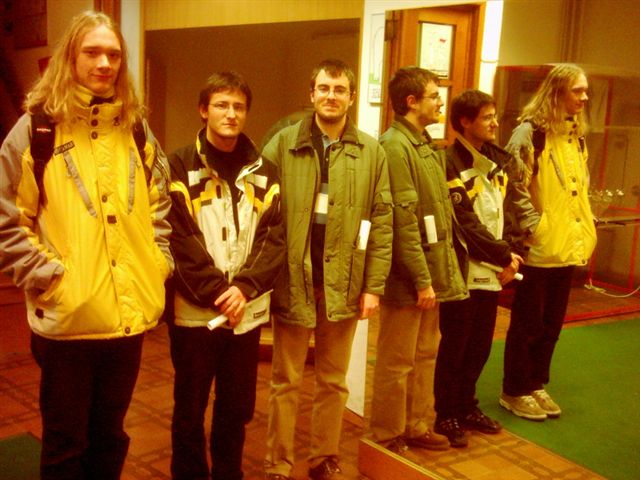
Optično kloniranje v Hiši eksperimentov . Ponavadi s takim kloniranjem ni težav, razen če se ne kloniraš zgodaj zjutraj po neprespani noči. Hitrost kloniranja je c=300 000 km/s.
Še beseda o enačbi in njenem pomenu za razumevanje življenja zvezd in nas samih.
Energija: E=m*c2 je enacba, ki hkrati opisuje svet atomov, na drugi strani pa širno - skrivnosti polno - vesolje. Iz energije, ki jo opisuje ta enačba, živi tudi naš planet, mi sami. Zlivanje vodika v helij, lažjih atomskih jeder v težje, v sredicah zvezd, povzroči, da je novo jedro nekoliko lažje od vsote mas jeder pred zlitjem. Razlika mas krat hitrost svetlobe na kvadrat, pa je energija, ki jo zvezde izsevajo v prostor (to je razlog, da Sonce sije). Mase zvezd se zaradi tega manjšajo. Naše telo potrebuje tudi težje elemente, železo itn, vsi ti elemneti so produkt termonuklearnih reakcij v zvezdah. Danes nam izsev Sonca omogoca življenje, hkrati pa smo mi sami, naši gradniki, produkt enakega procesa v preteklosti.
-
Prehod izrazite hladne fronte 19.11.2004
Sliki sta bili narejeni ob 16:15 iz vasi Dvor, z digitalcem Canon A60. Vremenska napoved in oster prehod fronte sta se ujemala, šolski primer. Astronomi kar čakamo na čisto ozračje po prehodu front.
Foto: Dejan Kolarič.
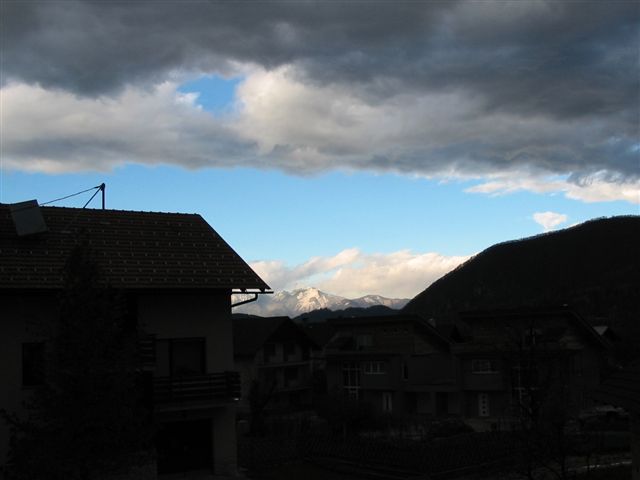
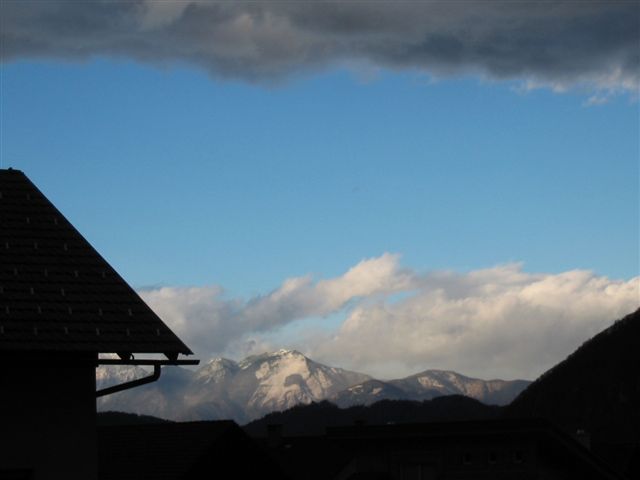
-
Jesen 2004, povečana verjetnost,
da vidimo polarni sij iz naših krajev - AURORA BOREALIS
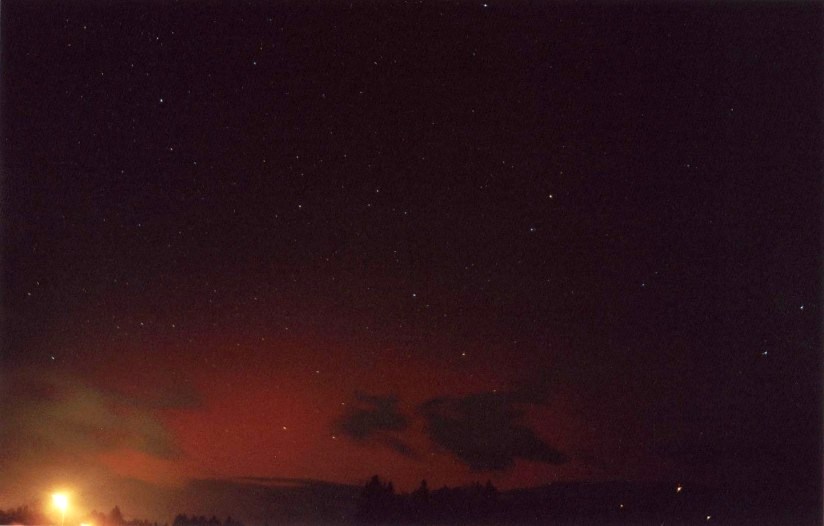
Slika posneta 7./8. novembra 2004 zvečer.
Photographs from Vodice, Slovenia (N46.19, E14.50) by Gregor Vertacnik using 35-mm lens and Kodak 200 film.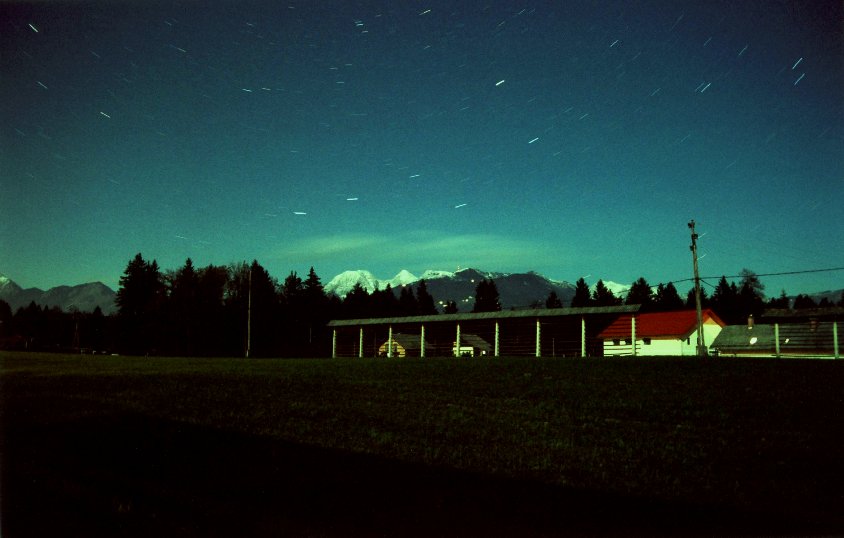
Slika nočnega neba posneta 20. nov. zvečer (okoli 21h30m).
Vodice, Slovenija (N46.19, E14.50), f=35-mm, Kodak 200 film, avtor: Gregor Vertačnik. -
Popolni Lunin mrk - 28. oktober 2004 - nad Slovenijo
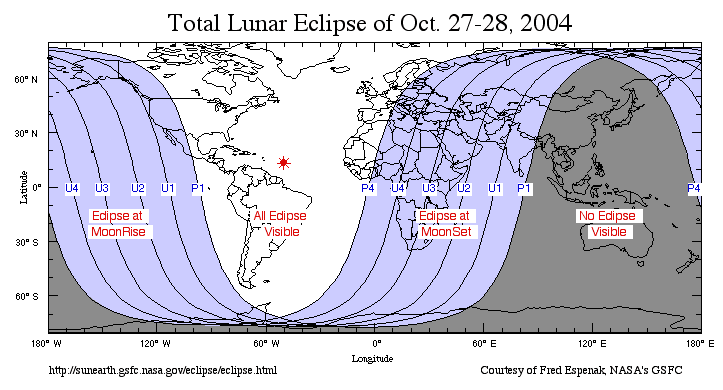 We calculate the animation of the Total Moon Eclipse for October 28th, 2004.
Total Moon Eclipse starts at 3h24' and lasts till 5h44' (CEST).
In a mean time Full Moon culminate at 5h07'.
All together from 2h07' to 7h50' when Moon escapes behind the horizon.
We calculate the animation of the Total Moon Eclipse for October 28th, 2004.
Total Moon Eclipse starts at 3h24' and lasts till 5h44' (CEST).
In a mean time Full Moon culminate at 5h07'.
All together from 2h07' to 7h50' when Moon escapes behind the horizon.
Popolni Lunin mrk - 28. oktober 2004 - nad Slovenijo Izračunali smo animacijo popolnega Luninega mrka za dan 28. oktober 2004. Polni mrk nastopi ob 3h24' in traja do 5h44' po našem času (CEST). Skoraj hkrati nastopi tudi polna Luna ob 5h07'. Vse skupaj se začne ob 2h07' in konča ob 7h50', ko Luna pobegne za obzorje.
Glej - http://www.geabios.com/?content=http://www.geabios.com/html/services/astronomy/eclipsemoon20041028/eclipsemoon20041028.htm
-
The 55th International Astronautical Congress, 4-8 October, 2004
Matija Kastelic je lani na srečanju mladih raziskovalcev EU, z nalogo Spektrometrija zvezd (STAR SPECTROMETRY, 15th EU Contest for Young Scientists, Budapest 20. - 26. september 2003), dobil imenitno nagrado - obisk "The 55th International Astronautical Congress, 4-8 October, 2004". Spodaj je del programa, predavanj, ki se jih je Matija udeležil. Zelo ga je navdušila ideja o vesoljskem dvigalu (Space Elevator) na principu nanocevk. Glej recimo http://www.isr.us/Spaceelevatorconference/aboutSE.html.
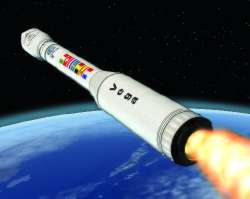
Nekaj besed je padlo tudi na temo nove evropske raketeVEGA. Baje "ima" prste vmes naš Jurij Vega, seveda kar se tiče imena rakete?
Zanimiv je tudi starejši projekt imenovan Vega.
Matija je prinesel tudi veliko plakatov, cd-jev itn. Predstavil je tudi možnost udeležbe na natečaju za ****BREZTEŽNOSTNI LET. Potrebno je predlagati dovolj izviren eksperiment v breztežnosti (ta se zagotavlja z letalom 4 minute, let po paraboli po 12x20 sekund).
ALI SMO SPOSOBNI PREDLAGATI ATRAKTIVEN IN KORISTEN EKSPERIMENT, KI BI SE IZVEDEL V BREZTEŽNOSTI ????????????????????????
Glej tudi:
(experiment for ESA student parabolic flight campaign, Weightless Science)
-
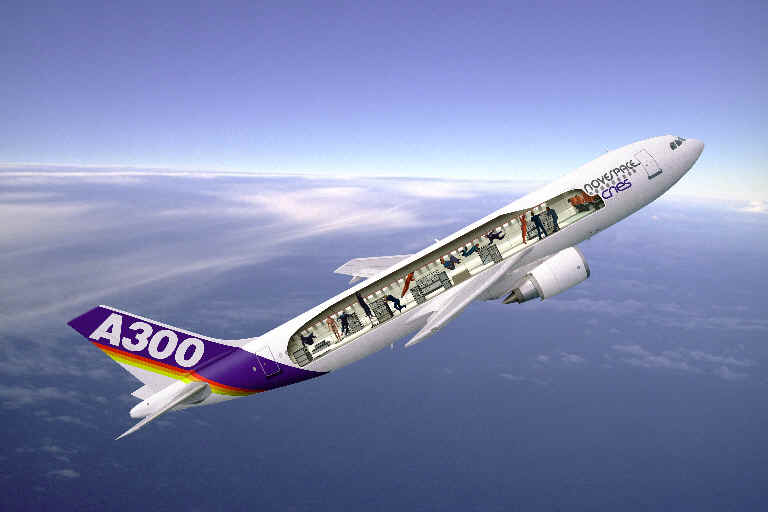 http://www.estec.esa.nl/outreach/parabolic/
http://www.estec.esa.nl/outreach/parabolic/
-
http://www.nasa.gov/audience/forstudents/k-4/home/F_Space_Science_Challenge_K-4.html
-
http://spacescience.com/headlines/y2003/4review_nosoap.htm
-
http://www.esa.int/SPECIALS/Delta_Mission/SEMPNK1PGQD_2.html
Veliko zanimivega in privlačnega se torej dogaja in nudi ogromno enkratnih moznosti in izzivov vsem, ki ste radovedni. Sprejmite katerega od njih, ne bo vam žal !!!
Šolsko raziskovalno delo nam je omogočilo že veliko veselja, spoznanj, izkušenj, izzivov, sedaj smo pred novimi.55th IAC Congress Technical Programme IAC Technical Sessions 55th IAC, Vancouver, Canada 4-8 October, 2004 Monday 4 October - afternoon Q.4. New Mission Concepts for Space Exploration Tuesday 5 October - morning IAA.3.8.2. Space Elevator Ribbons and Tethers in Space Tuesday 5 October- afternoon R.1. Power from Space - Prospects for the 21st Century Wednesday 6 October - morning B.4. Data for Environmental Applications and Global Change Studies IAA.6.16.2. Imaging Space: Inspiring the Next Generation Wednesday 6 October - afternoon IAA.5.12.2. Risk Analysis, Hypervelocity Impact and Protection Thursday 7 October - morning G.3. Artificial Gravity as a Tool in Biology and Medicine Thursday 7 October - afternoon IAA.6.15.4. Evolution of the Concepts of the Space Station Friday 8 October - morning Q.2.b. Solar System Exploration Friday 8 October - afternoon (this optional as there is only one session) V.8 Flight Test and Strategies for Future Vehicles 55th IAC Congress Technical Programme 1. Science and Exploration G. SPACE LIFE SCIENCES IN THE 21STCENTURY (Joint with IAA Commission 2) Coordinators: Ronald J. White USRA - USA Rupert Gerzer DLR, Institute of Aerospace Medicine - GERMANY G.3. Artificial Gravity as a Tool in Biology and Medicine The focus of the session will be on the use of artificial gravity in biological research to uncover the effects of gravity in physiology and in medicine to prevent the deconditioning that results from long-term space flight. Chairs: Laurence R. Young MIT - USA Vladimir Krotov IMBP - RUSSIA Rapporteur: Peter Graef DLR - GERMANY Q.2. Solar System Exploration This Session covers robotic missions for Solar System exploration (inner and outer planets and their satellites, and space plasma physics) except the Earth, Mars, and small bodies covered in other sessions of this Symposium. Lunar exploration is included in this Session. Chairs: William J. O'Neil Jet Propulsion Laboratory (retired) - USA Luc Frécon Alcatel Space Industries - FRANCE Rapporteur: Jim Middleton MacDonald Dettwiler Robotics - CANADA Q.4. New Mission Concepts for Space Exploration This Session will deal with the new fields of space missions which are today emerging such as fundamental physics, exobiology, etc. Mission concepts as well as the associated specific technologies will be addressed. Chairs: Denis Moura CNES - FRANCE Jim Middleton MacDonald Dettwiler Robotics - CANADA Rapporteurs: Douglas A. O'Handley - USA Jun'ichiro Kawaguchi ISAS - JAPAN William H. Siegfried The Boeing Company - USA B.4. Data for Environmental Applications and Global Change Studies Past and present Earth observation data are now being processed and analyzed for a wide variety of environmental and related applications. New and innovative approaches for the use of satellite data offer the potential for new products. Papers are invited which demonstrate such approaches and environmental applications. Results involving the application of satellite data for global change studies are of particular interest. Chairs: Bhaskar J. Choudhury NASA Goddard Space Flight Ctr - USA Carlo Ulivieri University of Rome "La Sapienza" - ITALY Rapporteur: Bruce K. Quirk U.S. Geological Survey - EROS Data Center - USA IAA.5.12.2. Risk Analysis, Hypervelocity Impact and Protection The session will address methods for in-orbit (collision) and on-ground (debris impact) risk assessment. The in-orbit analysis will cover collision risk estimates (based on statistical population models and deterministic catalogs), active avoidance (evasive manoeuvres), and passive protection (shielding and damage predictions). Shielding aspects will be supported by experimental and computational results of HVI tests. The on-ground risk assessment will address the disintegration modelling during re-entry for orbital and sub-orbital objects (e.g. launch systems), the identification of survivor objects, and the resulting human risk on ground. Chairs: Toshiya Hanada Kyushu University - JAPAN Heiner Klinkrad ESA/ESOC - GERMANY Rapporteur: Clare Martin Qinetiq - UK R.1. Power from Space - Prospects for the 21st Century General topics bearing on the use of space-based power for the Earth are the subject of this session. It will address needs and benefits of space-based power, policy, economic, general technical and architectural issues, as well as environmental and societal aspects of the acquisition and use of space power on the Earth. Chairs: Richard M. Dickinson Off Earth-WPT - USA Nobuyuki Kaya Kobe University - JAPAN Rapporteurs: Vladimir Prisniakov Academy of Science of Ukraine - UKRAINE Leopold Summerer ESA/ESTEC - THE NETHERLANDS IAA.3.8.2. Space Elevator and the Future of Tethers in Space The Space Elevator is a revolutionary means of access to space conceived of as a 100.000 km ribbon of carbon nanotubes with one end attached to Earth and the other end beyond GEO. This session addresses the spectrum of issues and challenges associated with space systems design, orbital dynamics, space environmental factors, construction technologies, etc... of space elevators as well as advanced concepts for tethers. Chairs: Peter Swan SouthWest Analytic Network - USA David Raitt ESA/ESTEC - THE NETHERLANDS Rapporteur: Brad Edwards Institute for Scientific Research - USA IAA.6.15.4. Evolution of the Concept of the Space Station In this session the history of the concept of the space station will be covered. Chairs: Roger Launius Smithsonian Institution - Space History - USA Rapporteurs: Randy Lieberman History of Technology - USA Otfrid Liepack Jet Propulsion Laboratory - USA IAA.6.16.2. Imagining Space: Inspiring the Next Generation In recent years, the number of graduates from universities holding degrees in space science and engineering has declined. Aware of this situation, and with growing concern, NASA is looking towards the entertainment industry to inspire the next generation's pursuit in space-related fields. Space, as seen through the eyes of Hollywood, has the potential to positively influence vast numbers of young people worldwide. Papers are sought that explore avenues in which mutually beneficial dialogs might be developed and implemented between the entertainment industry and the World space agencies, space scientists, and engineers. Past and future concepts that explore new ways to inspire the next generation of space scientists and engineers, through the entertainment industry, will be discussed. Chairs: Richard Clar Art Technologies - FRANCE Larry Bell Sasakawa International Center for Space Architecture - USA Rapporteur: Ted Krueger Rensselaer Polytechnical Institute - USA IISL. 47th COLLOQUIUM ON LAW OF OUTER SPACE Coordinator: Tanja Masson-Zwaan - THE NETHERLANDS
Sledijo njegovi vtisi, izkušnje ... (v pripravi)
-
Gregorjeva galerija, jesen 2004
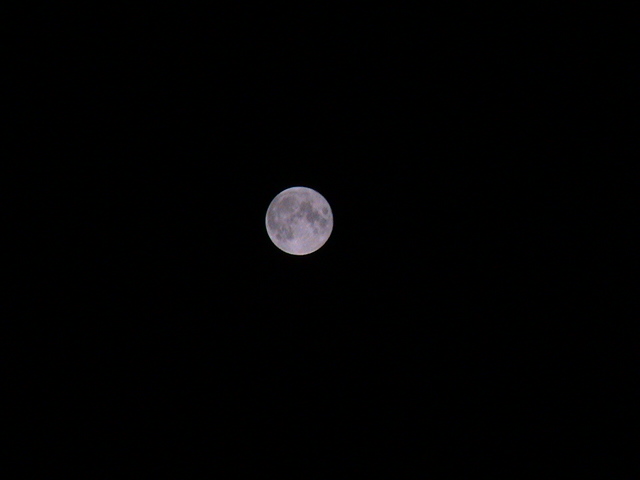
Luna
Irizacija (iris - mavrica, prelivanje barv)
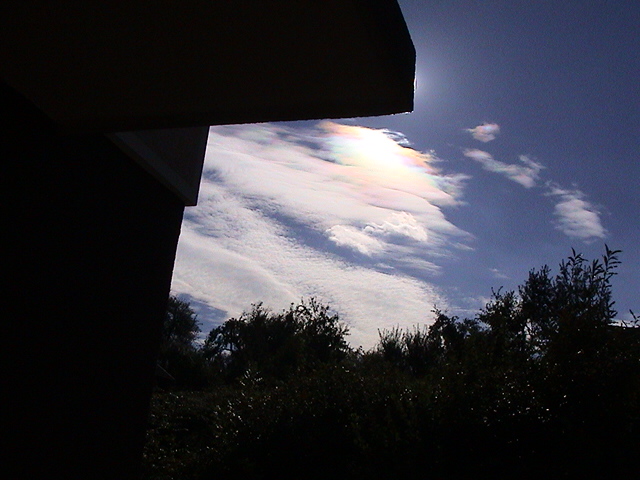
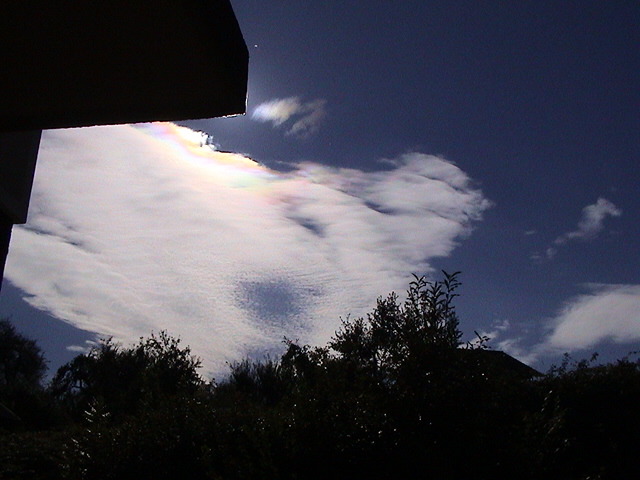
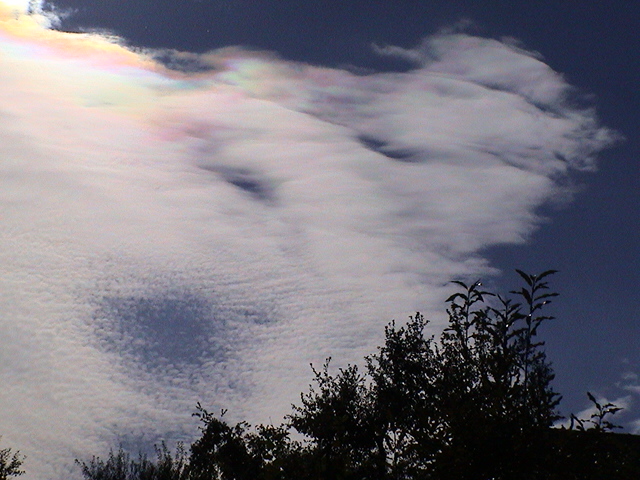
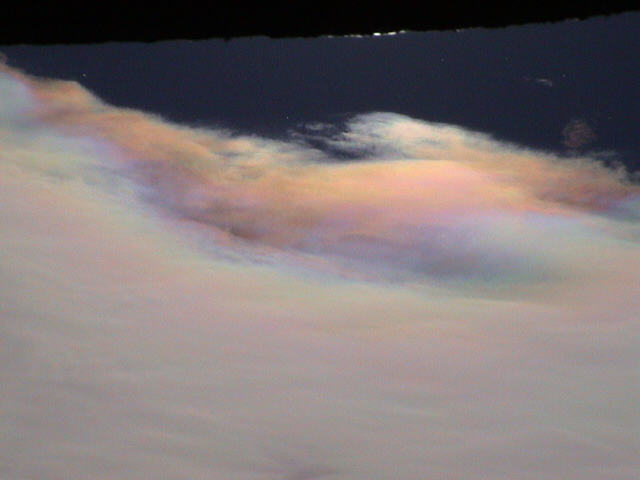
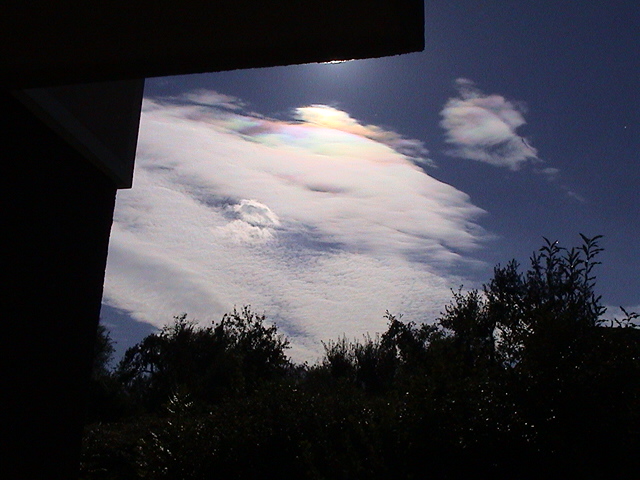
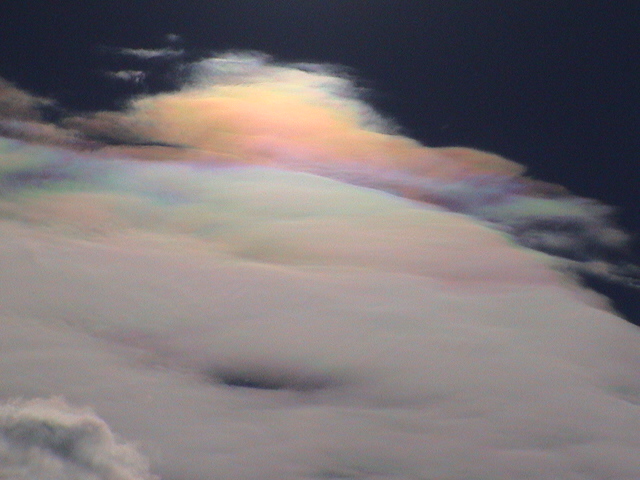
Avtor slik, Grgor Vertačnik, Vodice.
-
Spikino srečanje astronomov na Kisovcu, 11.9.2004
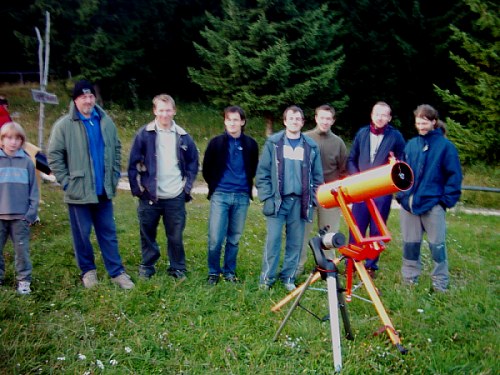
Nekateri člani AD Vega in AKG Šentvid na Kisovcu: Peter Mihor, Dejan Kolarič, Klemen Blokar, Gregor Vertačnik, ... Gospa Milica P. nam jo je prej popihala v dolino, saj je bilo videti, da veter ne bo pojenjal.
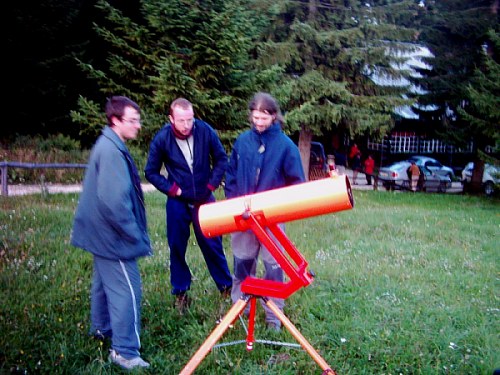
Gregorjev nov doma izdelani teleskop, D=18 cm, f=80 cm, odlična naprava. Gregor Vertačnik je prvi z leve.
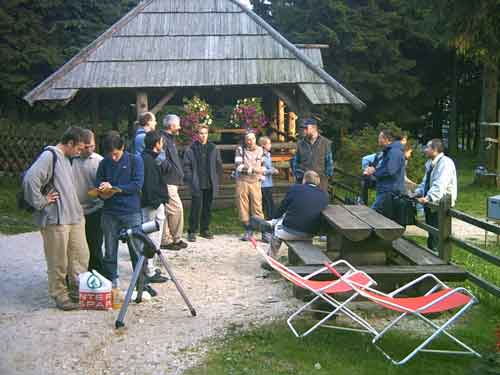
Srečanje astronomov na Kisovcu, 11. september 2004 (slika povzeta iz http://www.komet-drustvo.si/kisovec/).
Nekoliko smo primerjali Gregorjev teleskop in (ADV) teleskopek (refraktor, donacija članice ADV gospe Milice Pribošič, Celestron, NexStar 80 mm, f/5) Povečava 400mm/25mm = 16 je odlična za razsute kopice, recimo M45, M34, večje megličaste objekte, recimo M33, optika pa dovoljuje povečave nad 50, tako da tudi planeti niso noben problem. Naprava je zaradi majhnosti in lahkosti priročna, saj je z njo relativno enostavno rokovati. Teče na baterije 8x1.5V, ima računalnik voden preko prikupne tipkovnice, tudi dokaj zmogljivo knjižnico objektov. Iskalo je kar telemator z laserskim iskalnikom, nastavitev je altazimutna, umeritev teče preko dveh zvezd in kar dobro deluje. Vodoravnost je nekoliko nerodno določiti, na razgibanem terenu smo si pomagali z okularjem, ki smo ga postavili na mizico stojala in noge stojala toliko časa premikali, da je okular na mizici obmiroval. Nekateri udeleženci so bili presenečeni, da tako skromna optika (v bistvu teleobjektiv) nudi toliko podrobnosti na nebu.
Vse nas je navdušil Gregorjev doma brušeni in skonstruirani teleskop. Ostrina zvezdic (M45, gama Andromede) in sij meglic (M27) sta bila izjemna. Opazovali smo tudi tančico v Labodu. Izmenjali smo nekaj izkušenj, za nekatere je beta Laboda (Albireo) najlepšo dvozvezdje, za nekatere, predvsem Gregorja, pa gama Andromede. Nekako bi lahko sklenili, da je Albireo eno lepših izrazito raznobarvnih dvozvezdij, gama Andromede pa eno lepših dvozvezdij, z izjemno prikupno kombinacijo sijev.
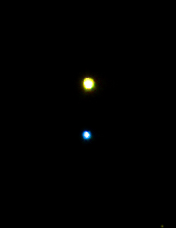
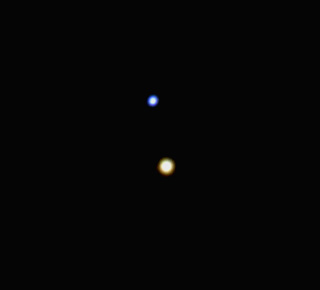
Albireo (Double Star in Cygnus). Beta 1 ima magnitudo 3.1 - rumena zvezda, Beta 2 ima magnitudo 5.1 - modra zvezda. Navidezno sta narazen 35 loč. sekund ("), od nas sta oddaljeni okrog 400 svetlobnih let.
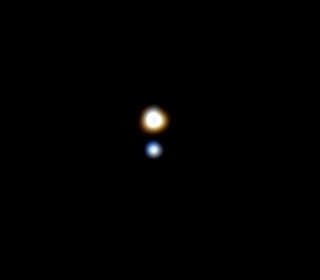
Gama Andromeda - je ena od najljepših dvojnih zvezd za male teleskope. Poznana je tudi pod imenom "Almach". Ena komponenta je svetlejša zlata (2.3 mag), druga pa je šibkejša modra (4.8 mag). Zvezdi sta oddaljeni okrog 10" in zahtevata povečave okrog 50x. Modra zvezda je hkrati dvojna, s sijem druge zvezde 6.3 magnitude (se v malih teleskopih ne razloči). Ta zvezda (6.3 mag) je spet dvojna (spektroskopsko) in tako imamo sistem štirih zvezd. Od nas je sistem oddaljen okrog 250 svetlobnih let.
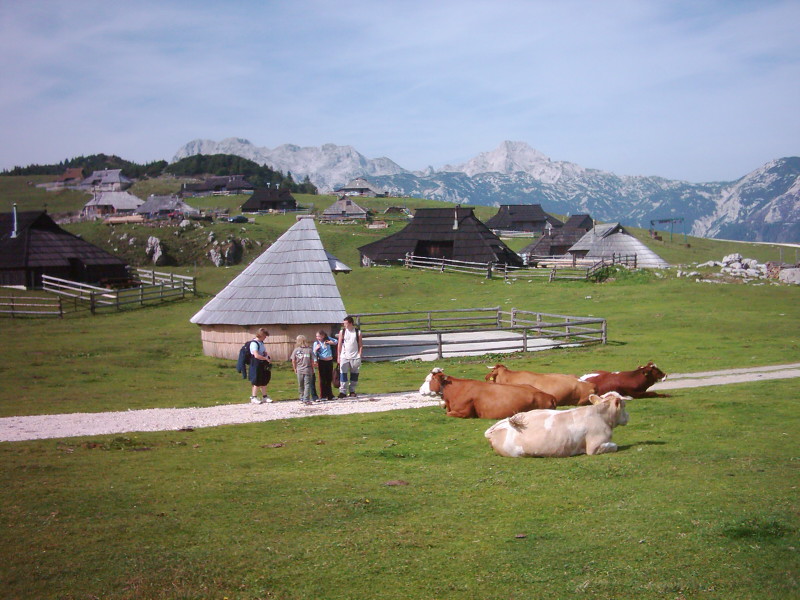
Nekateri so se pred srečanjem na Kisovcu odpravili na bližnjo VLIKO PLANINO, ki nudi poleg paše za krave, še veliko paše za oči in duha. Planjava in Ojstrica v ozadju tvorita izjemno koliso celotni planini.
Predavanja so bila odlična, glej povzetke, tudi samo vreme je na koncu zelo dobro služilo. Veter je pojenjal in tudi nebo je bilo dokaj jasno in mirno. Škoda, da so mnogi prehitro obupali.
• POVZETKI POSAMEZNIH PREDAVANJ (odlomki iz http://www.komet-drustvo.si/kisovec/):
1. Naslov: Dve malo drugačni uporabi CCD kamere v astronomiji
avtor: dr. Jure Skvarč, Observatorij Črni Vrh
Povzetek:
Astronomsko CCD kamero običajno namestimo na teleskop, s katerim sledimo zvezdam. Vidno polje je v takem primeru razmeroma majhno, zlasti pri dolgih goriščnih razdaljah pa smo pogosto omejeni s kvaliteto sledenja teleskopa. Dodatno težavo lahko predstavlja dolgotrajno branje kamere, kar prinese izgubo časa. Ta problem lahko rešimo s tako imenovanim načinom sledenja nebu (drift-scan), kjer teleskop miruje, premikamo pa naboje na tipalu CCD. Predstavljeno bo, kako to sploh lahko deluje in prikazani primeri uporabe, prednosti in omejitve te metode. Če namesto s teleskopom kamero uporabimo s širokokotnim objektivom ali s posebnim zrcalom, dobimo sliko vsega neba. Na kratko bo opisana vsenebna kamera na observatoriju Črni Vrh in nakazane različne možnosti uporabe.
2. Naslov: Opazovanja spremenljivk in observatorij Vega (vizuelna in CCD opazovanja)
avtorja: Teja Fabjan in Matej Mihelčič, Observatorij Vega
Povzetek:
• Predstavitev bo obsegala: Nekaj osnovnih metod pri vizualnem ocenjevanju spremenljivk. Prikazani bodo tudi rezultati. • Kako opazovanja spremenljivk in fotometrijo le teh modernizirati s CCD opremo • Predstavitev nekaj posnetkov kometov, galaksij, Venerinega tranzita z observatorija Vega
3. Naslov: CCD opazovanja kometov
avtor: Rok Palčič, Observatorij Rezman
Povzetek:
Na observatoriju Rezman že od začetka delovanja leta 1999 opazujemo komete s CCD kamero, občasno pa tudi vizuelno. Predavanje bo obsegalo predstavitev slik nekaj svetlejših in zato tudi lepših kometov kot tudi tehniko snemanja z novim teleskopom Rezman II. Pogledali si bomo kako je v eni noči mogoče posneti tudi preko 15 kometov, ki so trenutno vidni in niso šibkejši od 19. magnitude. Vse to omogoča sodobna tehnologija, ki je vgrajena v nove teleskope na observatoriju. Na koncu si bomo še pogledali kako narediti astrometrične meritve kometov, ki jih pošiljamo v Minor Planet Center.
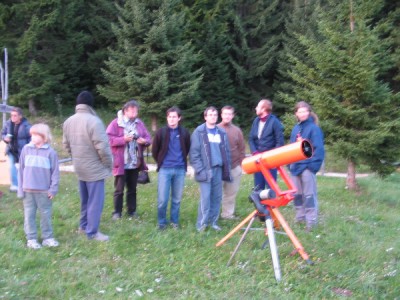
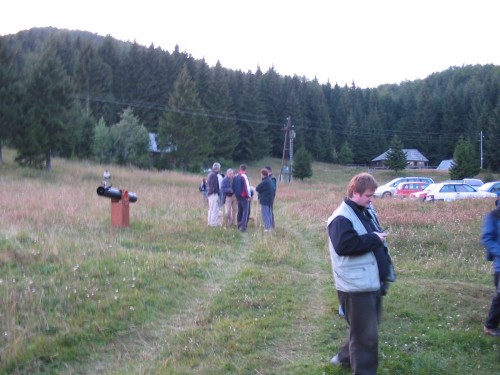
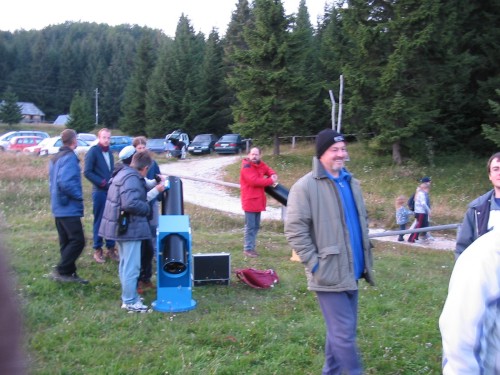
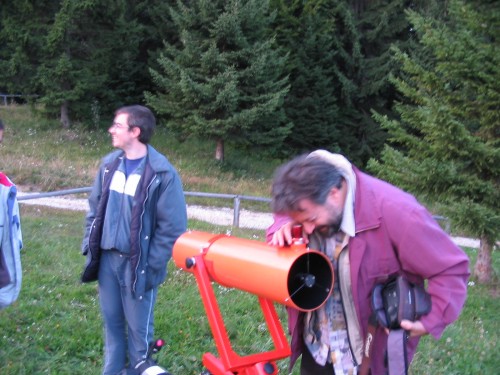
-
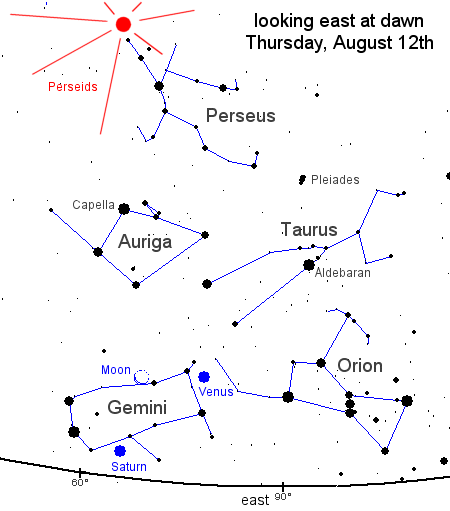
Perzeidi - utrinki 2004, "zvezde padajo z neba"
Kako nastanejo vsakoletni ponavljajoči roji utrinkov?
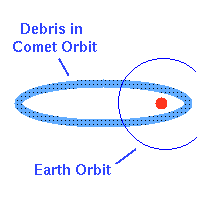
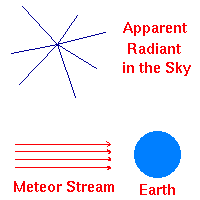
Sledenje prašnih delcev orbiti kometa in (morebitno) Zemljino sekanje kometove orbite, sta potrebna in zadostna pogoja za vsakoletno periodično ponavljanje meteorjev (utrinkov). Če Zemlja seka glavo razpadlega kometa, pa pride celo do meteorskega dežja ali nevihte. Hitrosti, s katerimi priletijo prašni delci v atmosfero Zemlje, so odvisne od smeri vpada. Hitrosti so tako lahko večje ali celo manjše od same hitrosti Zemlje (hitrosti se odštejeta). Perzeidi so najbolj znani meteorski roj (10.-12. avgust), relativna hitrost Perzeidov glede na Zemljo znaša okrog 59 km/s. Odkod taka hitrost? Hitrost Zemlje je 30 km/s, če pri tem upoštevamo še primerljivo hitrost kometa, potem pridemo do te izjemne hitrosti. Perzeidi so ostanki kometa Swift Tuttle - 1862 III (Doomsday-Comet, komet sodnega dne).
Klasični maksimum "utrinkov" bo letos sredi dneva (12. avg. 2004 od 13h do 15h po lokalnem času), a ker bo Zemlja letos zadela še eno izmed sledi ostankov kometa, si lahko obetamo še en maksimum, na veselje viden tudi iz Evrope (11. avg. ob 21h UT= 23h lokalno), ki bo bogatejsi od dnevnega, ZHR (Zero Hourly Rate) okrog 200 utrinkov na uro . Več o Perzeidih si lahko preberete na:
http://science.nasa.gov/headlines/y2004/25jun_perseids2004.htm
Odlomki
" Americans Lewis Swift and Horace Tuttle, working independently, discovered the comet in 1862, and they watched the Aug. 11th filament billow into space. Three years later Giovanni Schiaparelli (of Martian "canali" fame) realized it was the source of the Perseid meteors. He understood that the comet could come close to Earth, but in those days no one worried about such things.
The idea that comets and asteroids might threaten our planet was not widely accepted until the 1980s. Then astronomers began to worry. Comet Swift-Tuttle is big, about the same size as the asteroid that wiped out dinosaurs 65 million years ago, and as recently as 1992 it seemed that Swift-Tuttle might strike Earth in the year 2126. New data and calculations show otherwise, though. There's no danger of a collision for at least a millennium and probably much longer.
So relax. Enjoy the show. Perseids are harmless … and beautiful. This is an unusually good year to see for yourself "
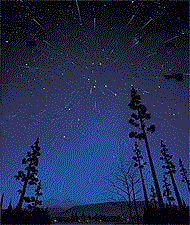
Ob meteorskem dežju ali na fotografijah, imamo občutek, da utrinki prihajajo iz ene toćke na nebu. Ta točka se imenuje radiant in je v primeru Perzeidov v ozvezdju Perzeja (animacija je narejena na Leonidih). V resnici se vpadni delci gibljejo bolj ali manj vzporedno proti Zemlji iz smeri določenega ozvezdja, a občutek ene točke se pojavi zaradi optičnega efekta (perspektive) navideznega bližanja vzporednih premic v neskončnosti. Enak efekt opazimo pri opazovanju sneženja iz gibajočega se avtomobila, navidezno sneži iz ene točke.
-
Član astronomskega krožka Klemen Blokar
se udeleži fizikalne olimpijade
v Koreji, 2004.
To je šele tretji dijak iz Gimnazije Šentvid - Lj., ki se mu je uspelo uvrstiti v slovensko ekipo, čestitamo. Glej tudi IPhO 2004 International Physics Olympiad
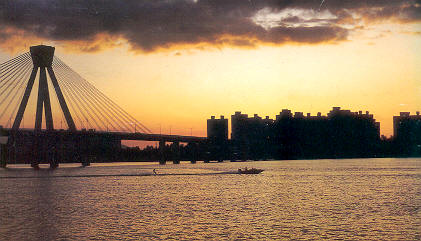
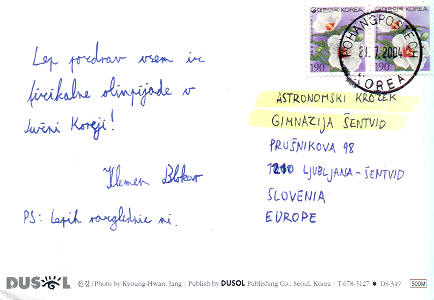
Kartica, ki smo jo prejeli od Klemna iz Koreje.
-
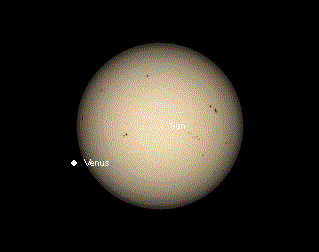
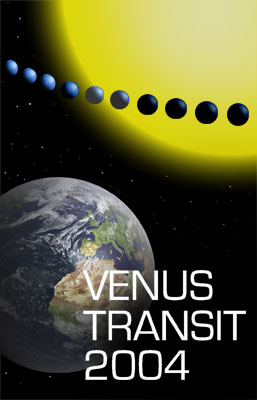
Prenos prehoda Venere preko Sonca v realnem času po internetu, Astronomski krožek Gimnazije Šentvid in AD Vega
-
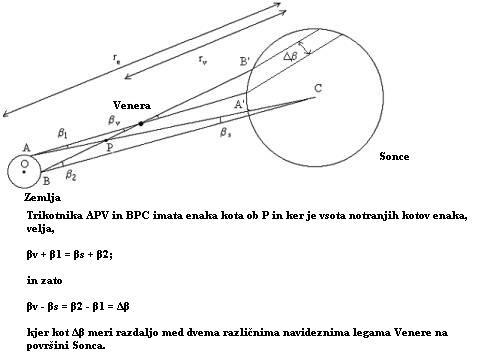
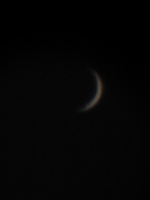
Metoda merjenja astronomke enote, priprave na prehod Venere 8.6.2004
-
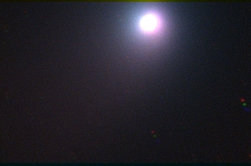
Komet NEAT 2001 Q4 10. maj 2004, Astronomski krožek Gimnazije Šentvid - ADV Slovenija. - ujeli satelit, ki je potoval navidezno mimo kometa
-
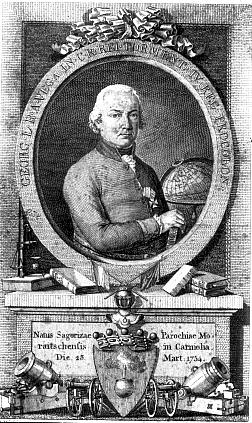
Vegovi dnevi 2004, ob dvestopetdeseti obletnici rojstva barona Jurija Vege, matematika, posredno tudi astronoma, artilerijskega častnika in balistika.
-
Srečanje astronomov na Limbarski gori, 19. marec 2004
(I. Messierjev maraton v Sloveniji)
-

Jupiter, sateliti in izračun rdeče pege
-
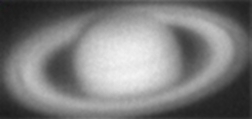
Posnetki Saturna (kaj več se težko potegne iz mesatnega okolja).
-
Temperaturna nihanja. Kaj nas čaka?

Za astronomski krožek: ZORKO Vičar
E-POŠTA, RFC-822: Zorko.Vicar@guest.arnes.si
Nazaj na aktualno stran.
Nazaj na domačo stran.
 GLEJ POLARNI SIJ 2003 - AURORA BOREALIS
GLEJ POLARNI SIJ 2003 - AURORA BOREALIS